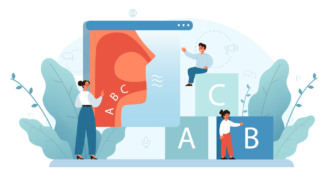LESSON OVERVIEW
In this lesson based on whodunits, students get an opportunity to practise past modals with puzzles and speculate about murder mysteries.
C1 / Advanced45 minStandard LessonUnlimited Plan
LEAD‐IN & VOCABULARY
The worksheet starts with a short text explaining the term whodunit and invites students to discuss their favourite detective stories and their authors. This introduction is followed by a vocabulary task in which students have to guess the missing words in eight sentences. All of them are related to solving mystery stories and their first letters are provided (e.g. clues, evidence, guilty). Afterwards, students once again engage in a discussion and try to imagine how detectives analyse crime scenes and look for clues.
VIDEO & SPECULATING
The next part of the lesson starts with a short whodunit video. Students watch the first part of it, check if they’ve understood what happened and speculate about the suspect using past modals. Then, they watch the whole video and answer two more questions. The following exercises give them a chance to practise the use of past modals to make deductions. In the first one, they read a short whodunit and are encouraged to speculate about what happened (e.g. I think Mrs Woods might have been killed by her husband because…). Finally, they get to practise their detective skills further through a video with a few short riddles. One possible way of doing this activity in class is by pausing after each riddle, asking students to make deductions using past modals and then showing them the solutions. We suggest doing three whodunits we selected, but you can do all of them if you want.
RELATED LESSON PLAN
Before doing this worksheet, you can introduce past modals with our other lesson plan:
WORKSHEETS
Subscribe to unlock these and many other Standalone lesson lesson plans with the Unlimited plan
Subscribe













Very good lesson, but i would say this is a B2 level
Thank you for taking the time to comment. We’ve just added B2 level as well.
Its great! A very original way to stir up my students modals review!
Happy to hear that 🙂
thank youuuuuuu
Good afternoon! Can you please reupload the first video? Thank you!
Hi! We’ve just updated the links in the PDFs and e-lesson plan. Thanks for letting us know!